15 Jan 2019 - {{hitsCtrl.values.hits}}
“The recent massive political crisis has created a nightmare for the youth in Sri Lanka”
– Prof. Siri Hettige
 The Law and the Constitution of Sri Lanka have been central topics of discussion not only locally, but also internationally. Much was expected of the Sri Lankan judiciary to clarify the truth about the law and relieve the general public of confusion as to how the country must be governed.
The Law and the Constitution of Sri Lanka have been central topics of discussion not only locally, but also internationally. Much was expected of the Sri Lankan judiciary to clarify the truth about the law and relieve the general public of confusion as to how the country must be governed.
All being said and done now (hopefully), one thing has become clear; a lot can be done with power in your hands and that a lot can be said if you stand on an authoritative pedestal
Along the road to the Supreme Court’s determination on December 13, 2018, both politicians and ‘constitutional experts’ advanced different theories and justifications supporting the President’s actions. However, the judiciary managed to retain its integrity by upholding the basic values of the Constitution and giving some direction to salvage the situation. All being said and done now (hopefully), one thing has become clear; a lot can be done with power in your hands and that a lot can be said if you stand on an authoritative pedestal. Now how does society view all this? What ripple effects will the people and future generations experience, (or rather suffer from) due to these dangerously intuitive decisions taken by the President?
Root cause of crisis
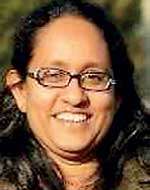 In a discussion on the Constitutional Crisis and the Political situation in the country, Dr. Harini Amarasuriya, a Senior Lecturer at the Department of Social Studies at the Open University of Sri Lanka (whose research interests are on youth and politics, policy, and the State), discussed the emerging undesirable effects of the current instability of the country on the youth. She spoke of an underlying basic set of ethics that every citizen must live by over and above whatever that is prescribed in the Constitution.
In a discussion on the Constitutional Crisis and the Political situation in the country, Dr. Harini Amarasuriya, a Senior Lecturer at the Department of Social Studies at the Open University of Sri Lanka (whose research interests are on youth and politics, policy, and the State), discussed the emerging undesirable effects of the current instability of the country on the youth. She spoke of an underlying basic set of ethics that every citizen must live by over and above whatever that is prescribed in the Constitution.
The root cause of the recent crisis is the loss of these moral values
Dr. Amarasuriya identified that the root cause of the recent crisis is the loss of these moral values and ethical norms when it comes to politics and governance. Sri Lankan politics, as she pointed out, has become to be known as dirty, corrupt and immoral. She poignantly emphasised that “The real threat to democracy and the biggest fear is the resulting disinterest, loss of faith, cynicism and disregard for politics and governance that is emerging among the youth”.
Youth unrest
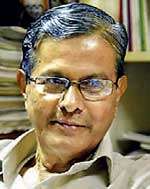 Prof. Siri Hettige, an expert in social anthropology, also contributed with his opinion on this issue. He pointed out on the outset that Sri Lanka is a country that has experienced dire consequences of youth unrest, frustration and violence which even led to a civil war, and yet addressing the needs of the youth has never been one of the primary objectives of any Government.
Prof. Siri Hettige, an expert in social anthropology, also contributed with his opinion on this issue. He pointed out on the outset that Sri Lanka is a country that has experienced dire consequences of youth unrest, frustration and violence which even led to a civil war, and yet addressing the needs of the youth has never been one of the primary objectives of any Government.
He stated that the already miserable situation that the youth of Sri Lanka is in due to continuous failures in past policies have been made far worse by the recent massive political crisis.
Prof. Hettige identified that unemployment among the youth, especially those who are educated, as the main issue that needs to be addressed. He stated that successive Governments have not on the one hand, reformulated our public education system to impart the kind of skill-mix and competence that are demanded by the private enterprises that are coming up. On the other hand, nothing has been done to diversify the economy and create employment. He pointed out how despite other East Asian countries doing wonders with the agro-based industry, Sri Lanka’s agriculture is stagnated.
Having asked about the tendency of youth to migrate, Prof. Hettige recognised that as the next issue, as it is only a handful of the youth-who can converse in English and have secured academic credentials that are accepted by employers in other countries-who manage to migrate as skilled labourers. He emphasised that a vast population of de-skilled youth, who want to find white collar jobs in the public sector with future prospects and social security, are left without hope. He was extremely skeptic as to whether these issues would be resolved following the next general elections; given that one of the two main political parties was incapable of doing anything progressive to resolve this issue and in the event that it would return to power.
So these recent events have created a nightmare for the youth
“The Governments representing the two main political formations in the country have never paid attention to the bigger picture. With the current crisis, the young people no longer have the kind of certainty and stability that they would have liked and the kind of economic conditions in order to attain the upward social mobility that they look forward to. Unlike the elderly population, the youth of the country depend on these conditions to build up on their futures. So these recent events have created a nightmare for the youth population as they don’t know what is in store for them, ” said the professor.
Social actions
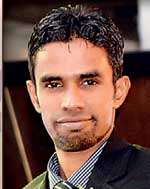 Representing the active youth in Sri Lanka, Sachinda Dulanjana, Speaker of Sri Lanka Youth Parliament and a former Official of the Sri Lankan Youth Delegate to the United Nations, expressed his sheer disappointment with the conduct of Sri Lankan politicians. He stated that many young people have declared that there is no future for the country due to the presence of corrupt politicians, but it does not mean that the youth have given up on the country. He opined that close observations show a tendency on the part of the youth to engage in social actions to address certain issues without waiting for the politicians to address them while featuring their interventions on social media. Sachinda strongly believes that it is important to promote this change-making attitude to hold politicians accountable without considering them to be over and above the public.
Representing the active youth in Sri Lanka, Sachinda Dulanjana, Speaker of Sri Lanka Youth Parliament and a former Official of the Sri Lankan Youth Delegate to the United Nations, expressed his sheer disappointment with the conduct of Sri Lankan politicians. He stated that many young people have declared that there is no future for the country due to the presence of corrupt politicians, but it does not mean that the youth have given up on the country. He opined that close observations show a tendency on the part of the youth to engage in social actions to address certain issues without waiting for the politicians to address them while featuring their interventions on social media. Sachinda strongly believes that it is important to promote this change-making attitude to hold politicians accountable without considering them to be over and above the public.
I think it’s time for them to learn from the youngsters if they do not know to follow parliamentary proceedings while upholding democracy and people’s sovereignty”
Like Prof. Hettige, Sachinda also pointed out that political leaders of our country have not only during the recent past, but have for decades failed the country’s population. Referring to the misbehaviour of the parliamentarians in Parliament, he stated that someone cannot be a leader if he or she cannot diplomatically put forward ideas while respecting the view of another.
“Parliamentarians can visit the Youth Parliament of Sri Lanka and see how a Parliament should function while generating quality policy discussions. I think it’s time for them to learn from the youngsters if they do not know to follow parliamentary proceedings while upholding democracy and people’s sovereignty” he added.
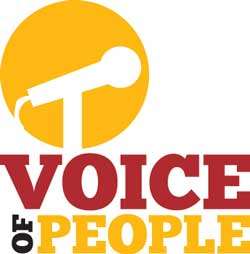
Youth eradication
A young Local Government member recently elected to the Kelaniya Pradeshiya Sabha representing the People’s Liberation Front (JVP), Darshana Waragoda opined that the change of the Prime Minister, Cabinet of Ministers of Government does not resolve the issues that the youth of Sri Lanka are facing.
He added that it is a mere change of the party that acts towards eradicating them. He stated that youth eradication by the existing political parties began in the 1980s when young scholars, artistes, and other young people, who in truth fought for societal needs, were killed large-scale. According to him, issues relating to constitutional interpretation are not the real problems that affect the community or the youth and there is no point in discussing it over and over again.
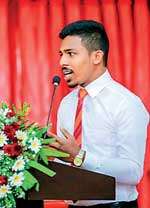
Issues relating to constitutional interpretation are not the real problems
-Darshana Waragoda
Lacking in civic consciousness
Shelani Palihawadana, a law undergraduate, expressed her deep disappointment at the lack of respect the politicians show towards the Constitution and the people. “I’m ashamed of their stead on the blatant lack of integrity and their shameless showcasing of greed for power”. She also expressed her fear for the country and its future as most people consider the recent crisis as yet another political stunt that doesn’t affect them. She opined that the youth in Sri Lanka lack civic consciousness. “If we don’t demand for accountability, transparency and good governance, who else will? We are the one portion of the population whose members will not bend to their (politicians’) will even if presented with material incentives and we are not taking proper advantage of that” she said.

I’m ashamed of their stead on the blatant lack of integrity
-Shelani Palihawadana
Strong stance
The same ideas were shared by youth activist Krishan Balaji from Colombo, who engages mostly in representing the youth in volunteer movements. Balaji viewed that most youth took a very strong stance against the constitutional crisis; at least through social media. However, he expressed that their voices have now softened, despite pressing issues still prevailing in Sri Lanka. “The older generations are not going to be affected by the decisions of the country’s leaders as much as we are. So if we want to shape the country’s future, we need to consistently fight for what is right and not give up,” he affirmed.
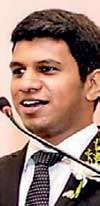
we need to consistently fight for what is right and not give up,
-Krishan Balaji
30 Nov 2024 1 hours ago
30 Nov 2024 4 hours ago
30 Nov 2024 6 hours ago
30 Nov 2024 7 hours ago
29 Nov 2024 29 Nov 2024